Did you know that over 70% of industrial innovation in 2025 was traced back to advancements first driven by leading machine builders? This staggering figure highlights a fact many manufacturers overlook: machine builders are not just suppliers—they’re the creative force powering entire industries. In today’s rapidly evolving manufacturing landscape, innovation doesn’t wait. Instead, it happens at the intersection of technology, custom machine solutions, and the expertise of world-class machine tool builders. If you want your production line to deliver both efficiency and a competitive edge, understanding the pivotal role of machine builders is non-negotiable. In this article, we’ll dive deep into why machine builders are shaping the future, how they set industry trends, and what manufacturers like you must know to stay ahead.
Unlocking the Power of Machine Builders: Surprising Stats That Shape Industry Trends
The influence of machine builders extends far beyond basic equipment supply—they are the architects of efficiency, automation, and forward-thinking design in modern manufacturing. A recent industry survey revealed that machine builders directly contributed to more than 70% of breakthrough innovations recorded in 2025—a testament to their leadership in reshaping traditional shop floors. In a world where every minute of downtime and every inefficiency can translate to lost profits, the importance of working with a reputable machine tool builder or tool builder can’t be overstated. These professionals incorporate the latest technologies, such as advanced control systems, robotics, and motion control, into custom machine solutions that optimize every aspect of the manufacturing process, ensuring that operations run smoothly and reliably.
Today’s machine builders are instrumental in propelling diverse sectors forward. Their knowledge isn’t just about piecing together manufacturing machinery but about integrating machine tools, refining software tools, and driving innovation tailored to unique production needs. As global supply chains face disruption and markets turn their focus toward quality and resilience, manufacturers partnering with innovative machine builders are better positioned to adapt and thrive. Whether responding to tariff pressures, reshoring impulses, or evolving customer demands, these companies recognize that a collaborative approach with experienced machine tool builders is the secret weapon for ongoing success.
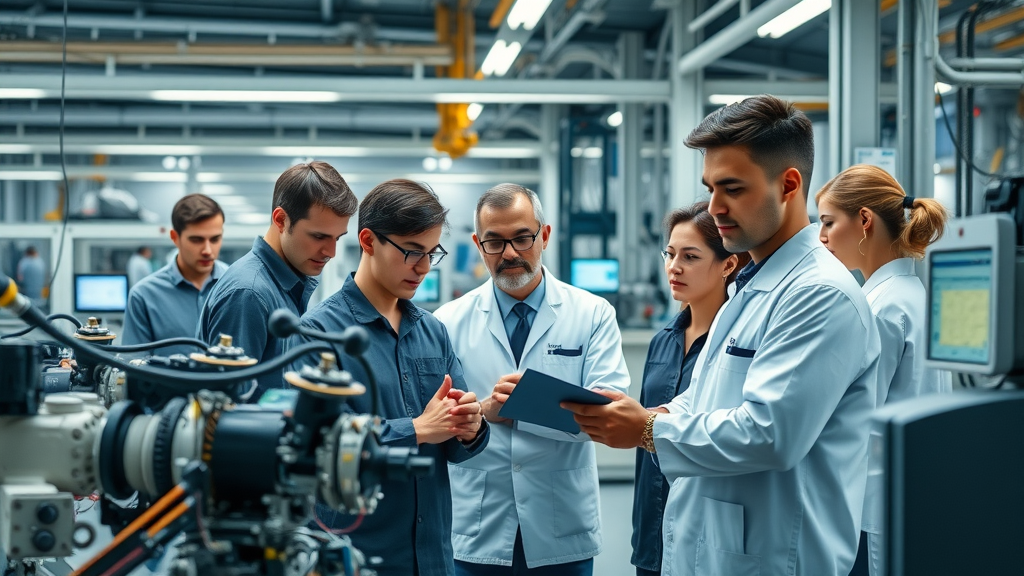
"Over 70% of industrial innovation in 2025 was traced back to advancements first driven by leading machine builders."
What You'll Learn About Machine Builders, Tool Builders, and Custom Machine Innovators
What defines a machine builder’s role in modern manufacturing
How machine tool builders impact innovation and competitiveness
The benefits of partnering with expert custom machine builders
Key considerations when choosing a machine builder for your operation
The evolving relationship between OEMs and machine builders
Industry shifts influencing machine building, including tariffs and reshoring
Machine Builders Explained: Definition, Role, and Industry Significance
What does a machine builder do?
Machine builders are the masterminds behind the design, assembly, and integration of complex manufacturing and automation systems. They go far beyond assembling standard machine tools; these professionals tailor machinery—from simple fixtures to advanced robots—according to the exact requirements of each manufacturer. Drawing on years of experience, machine builders analyze the unique challenges faced on the shop floor, recommending and building solutions for diverse applications like mass production, quality assurance, and assembly automation. A crucial part of what they do involves incorporating the latest technology and robust control systems into their builds, ensuring every piece of equipment runs smoothly and adapts to evolving operational needs. The best machine builders not only provide state-of-the-art machinery but also support clients with replacement parts, software tool upgrades, and ongoing services, making them key partners in continuous improvement.
The work of a machine builder touches every aspect of the manufacturing process, from initial consultation and machine design to installation, integration, and maintenance. This holistic approach enables manufacturers to implement customized solutions that improve efficiency, reduce downtime, and lower costs. Whether specialized in motion control, air compressor technology, or advanced automation, machine builders possess the versatility necessary to meet industry-specific requirements. The result is a seamless transition from conceptual design to operational reality, accelerating innovation at every turn.
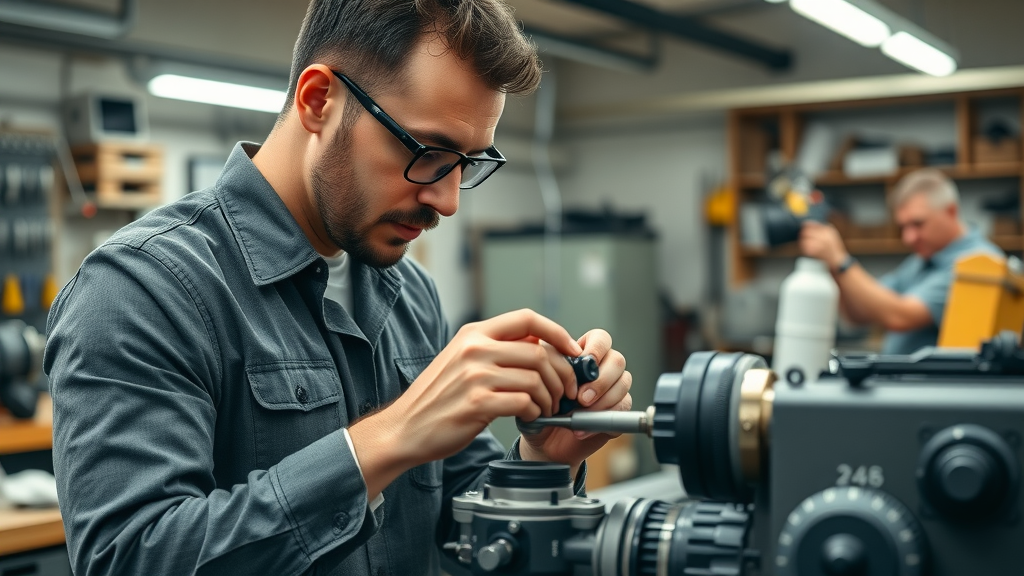
Who are people who build machines? Understanding the Profile of Tool Builders
People who build machines—often known as tool builders—are skilled professionals with expertise in mechanical engineering, electronics, automation, and computer-integrated manufacturing. These individuals utilize a unique blend of hands-on experience and theoretical knowledge to construct and optimize machine tools and custom machinery tailored to specific industries. Their roles go beyond traditional manufacturing; tool builders are creative problem-solvers who address production bottlenecks, design innovative fixtures, and ensure safety and compliance with stringent industry standards. In collaboration with machine manufacturer teams, they help develop robust, high-precision solutions that support increased output and longer machine life.
Tool builders are the bridge linking design concepts to functional machines—often working closely with clients to understand operational goals and troubleshoot shop floor issues. In industries ranging from automotive to pharmaceuticals, their contributions are critical for delivering solutions for diverse manufacturing needs, enhancing both quality and productivity. Today, many tool builders work for or with leading names like Astro Machine Works, whose innovative approach has made them an industry leader in custom machine and control system design. Their expertise ensures that the machines they build aren't just operational—they are optimized for today’s rapid pace of global manufacturing.
How Machine Tool Builders Drive Manufacturing Excellence
The Impact of Machine Tool Innovation on Productivity and Cost
Modern machine tool builders are driving significant gains in manufacturing productivity, cost-efficiency, and product quality. By continually refining their offerings with the help of digital technology, intelligent sensors, and motion control systems, these professionals enable manufacturers to automate repetitive tasks, minimize human error, and maximize uptime. The integration of high-precision machine tools with advanced software tools streamlines operations and makes rapid adaptation to shifting market demands possible. With fewer manual interventions, machine tools can operate at higher speeds and with greater accuracy, directly impacting mass production capabilities and bottom-line results.
Another critical area where machine tool builders excel is cost control. Custom solutions, such as those developed by leading industry innovators, ensure manufacturers pay only for the features and capacity they need—eliminating unnecessary expenses often found in one-size-fits-all machines. Tools built with future scalability in mind also extend the useful lifespan of machinery, reducing capital expenditures for new equipment. The sum of these improvements: lower total cost of ownership, shorter lead times, and the flexibility to stay competitive in a global marketplace increasingly shaped by technological advancements and shifting regulatory landscapes.
Comparing Traditional and Custom Machine Building Approaches: Efficiency, Speed, and Innovation
Aspect |
Traditional Machine Building |
Custom Machine Building |
|---|---|---|
Design Process |
Standardized, limited flexibility |
Tailored to unique specs, collaborative |
Implementation Speed |
Faster for basic projects |
Slower upfront but optimized for final results |
Innovation Level |
Incremental improvements |
Rapid adoption of new tech and processes |
Efficiency Gains |
Baseline efficiency; limited by standard features |
Maximized efficiency through optimization |
Cost |
Lower initial investment |
Higher upfront, but more cost-effective in the long term |
Competitive Edge |
Meets minimum market requirements |
Provides differentiation and market leadership |
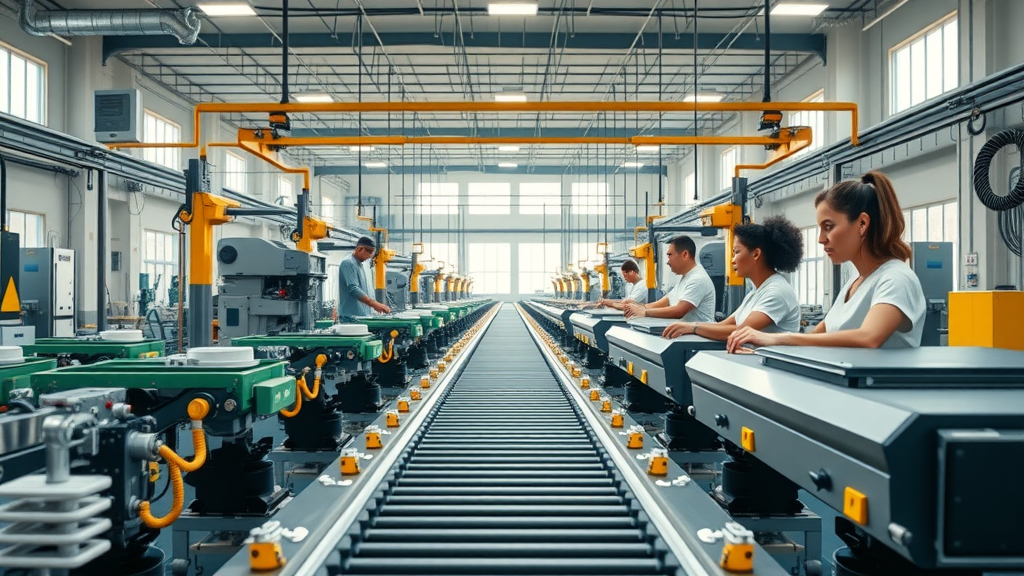
Custom Machine Builders: The Role of Machine Works and Astro Machine Works
From Standard to Custom—When Should Manufacturers Opt for a Custom Machine?
As manufacturing challenges grow more complex, the decision between off-the-shelf machines and fully customized solutions becomes increasingly important. Custom machine builderslike Astro Machine Works and their counterparts, specialize in translating a manufacturer’s specific requirements into high-performing, purpose-built systems. Custom machines are the preferred choice when standard equipment falls short—such as when intricate automation, specialized testing, unique packaging, or integration with existing control systems is required. Manufacturers with unique workflows, space limitations, or demanding industry standards benefit most from custom machine projects, where every detail is optimized for maximum performance and seamless operation on the shop floor.
Choosing a custom machine also makes financial sense when long-term flexibility or adaptability is a priority. Unlike conventional systems, custom machines are built with scalability and upgrades in mind, ensuring that changes in product lines or process improvements don't necessitate buying entirely new equipment. This approach also streamlines ongoing maintenance, as builders supply replacement parts and aftermarket services tailored specifically to each client, further reducing unexpected downtime and costs. For ambitious manufacturers aiming for best-in-class operational outcomes, working with a forward-thinking machine tool builder is an indispensable step toward sustainable growth.
Astro Machine Works Case Study: Pioneering in Machine Building
Astro Machine Works stands out as a leader in the custom machine manufacturing landscape, thanks to their innovative approach, collaborative philosophy, and diverse portfolio of successful projects. Take, for example, their partnership with a leading OEM seeking to overhaul a legacy assembly line. Astro Machine Works conducted a rigorous analysis of the client's workflows, pain points, and space requirements, then designed a fully integrated system that dramatically increased throughput, improved safety, and minimized manual labor. Their solution leveraged the latest machine tools, advanced control systems, and seamlessly integrated software tools—delivering operational excellence and a clear competitive advantage.
This case highlights the broader role that custom machine builders play in modern industry. Not only do they provide solutions for diverse manufacturing challenges, but they also act as strategic advisors—helping clients identify opportunities for automation, process improvement, and long-term cost savings. By emphasizing partnership and technical innovation, Astro Machine Works and similar companies empower manufacturers to stay ahead of global trends, quickly adapt to changes in trade policy, and grow with confidence in a volatile market.
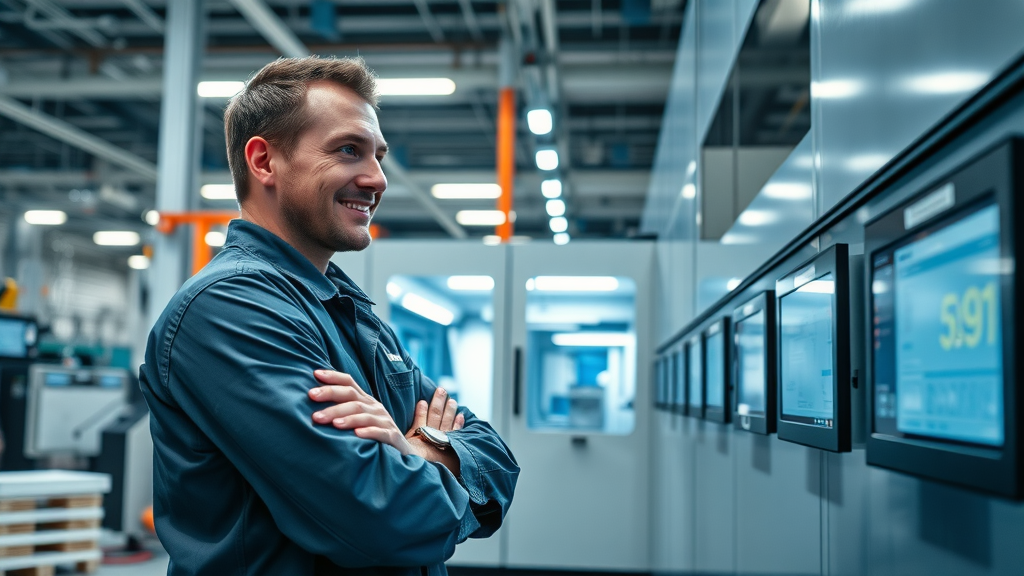
Machine Builder vs. OEM: Understanding the Key Differences
What is the difference between OEM and machine builder?
OEMs (Original Equipment Manufacturers) are companies that design and manufacture products—such as vehicles, medical devices, or electronics—to be sold under their brand. In contrast, machine builders are specialized suppliers who create the machinery and equipment OEMs need to build their branded products. While OEMs focus on end-user markets, design, and sales, machine builders serve as the behind-the-scenes innovators, engineering and constructing the tools and systems that allow manufacturers to turn concepts into tangible goods efficiently and reliably.
The partnership between an OEM and a machine builder is often synergistic. Machine builders bring technical expertise in control systems, precision engineering, and automation integration—skills that complement the broad vision and market reach of OEMs. By collaborating with a quality machine builder, OEMs can ensure their manufacturing process remains state-of-the-art, cost-effective, and scalable, keeping them ahead of the competition. The distinction also extends to support: machine builders frequently provide training, parts, and after-sales service designed for long equipment life and continual performance improvements.
Machine Builder Partnerships for Competitive Advantage
Building strong partnerships with machine builders is essential for companies looking to maintain a competitive edge in today’s fast-paced manufacturing environment. Effective collaboration goes beyond transactional purchasing—it’s about viewing your machine builder as an extension of your own engineering and production teams. By leveraging the years of experience and technical know-how of leading machine tool builders, manufacturers can anticipate production challenges, implement innovative solutions for diverse needs, and maintain a flexible, future-proof manufacturing operation.
These relationships are particularly valuable during periods of global change, such as rising tariffs or sudden shifts in supply chain dynamics. A trusted machine builder can advise on how to adapt control systems, source replacement parts, and optimize production in light of new constraints, supporting resilience and profitability. The most successful manufacturers view their partnerships with machine builders not just as a cost but as a strategic investment in long-term innovation and success.
Industry Trends: How Machine Building Responds to Global Trade Changes
Tariffs, Reshoring, and the Evolving Machine Tool Market
The global trade environment is rapidly shifting due to new tariffs, reshoring trends, and evolving regulatory scrutiny. These changes are having a profound impact on the machine tool market and the role of machine builders. Tariffs on imported steel and machinery components have driven up raw material costs, compelling manufacturers to seek more efficient, customized solutions from domestic machine builders. Meanwhile, reshoring—the movement to relocate production back to home markets—puts additional pressure on manufacturers to minimize costs, increase automation, and mitigate disruptions linked to international logistics.
Machine builders play a pivotal role in navigating these shifts. By providing tailored machine tool solutions that increase operational flexibility and cut dependence on volatile supply chains, they empower manufacturers to adapt to new trade realities. Companies that proactively invest in updated control systems, automation, and future-ready technology are better positioned to weather tariffs, shipping delays, and regulatory changes. This capacity to anticipate and manage risks makes a world-class machine tool builder an invaluable partner in today’s complex industrial ecosystem.

What to Look for in a Machine Builder: Quality, Support, and Innovation
Track record in custom machine building: Review the provider’s portfolio, client testimonials, and years of experience designing both standard and innovative systems.
Technological expertise in automation and integration: Ensure your prospective partner excels in state-of-the-art control systems, motion control integration, and complex manufacturing process automation.
Aftermarket support and global service capabilities: Top machine builders offer robust spare parts distribution, software tool upgrades, and technical support services across borders.
Responsive to regulatory and supply chain challenges: Choose a partner who stays alert to changing global trade laws, tariffs, and supply chain disruptions—key for ongoing operational stability.
"A trusted machine builder isn't just a supplier—they are your innovation partner in a rapidly changing industrial landscape."
FAQ: Machine Builders and the Manufacturing Ecosystem
What is someone who builds machines called?
Someone who builds machines is typically called a machine builder or tool builder. These professionals possess specialized skills in mechanical design, electrical integration, and automation. They work on custom machine projects, upgrade existing equipment, and ensure every system is tailored to meet unique shop floor needs. The title may also include roles such as machine tool builder, control systems specialist, or machine manufacturer, depending on their expertise and industry focus.
Who are people who build machines?
People who build machines are often mechanical engineers, machine tool builders, technicians, automation specialists, and industrial designers. They collaborate as teams to design, assemble, and optimize machinery that powers diverse sectors, from automotive to food processing. Professionals working at companies like Astro Machine Works exemplify the industry leader mindset, combining practical experience with an innovative approach to deliver products and services that keep factories running smoothly and efficiently.
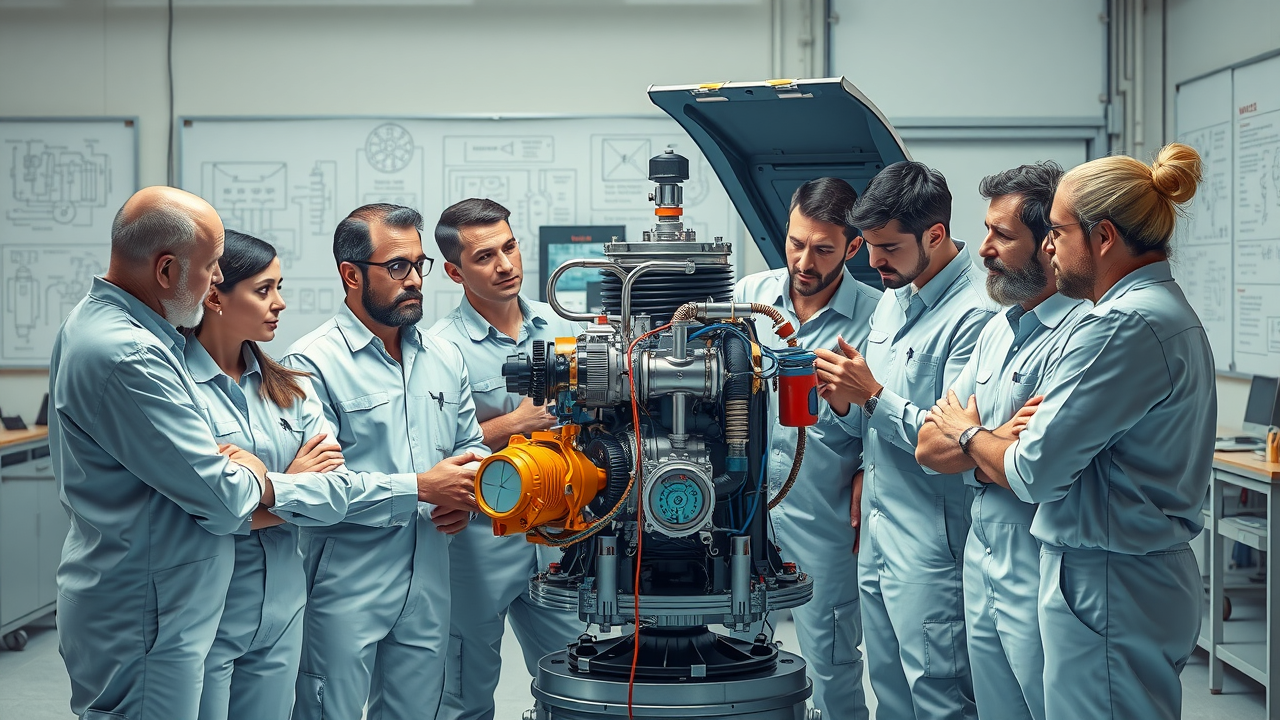
What does a machine builder do?
A machine builder oversees the entire lifecycle of a machine project: from requirements gathering and design to assembly, integration, control system calibration, and after-sale support. Their goal is to deliver solutions that enhance productivity, lower costs, and ensure operational reliability. By leveraging advanced machine tools, motion control, and software tools, they help manufacturers streamline processes and quickly respond to evolving industry demands.
What is the difference between OEM and machine builder?
The key difference is that OEMs manufacture finished products for end users, while machine builders supply the specialized equipment and technology OEMs need for their production lines. Machine builders focus on creating, customizing, and supporting machinery integration, whereas OEMs concentrate on delivering their branded goods to market.
Key Takeaways: Why Machine Builders Remain Central to Industrial Success
Machine builders drive manufacturing innovation, efficiency, and customization.
Partnering with the right tool builder supports resilience in trade and supply chain shifts.
Evaluate machine building expertise, after-sales service, and adaptation to global trends before choosing a supplier.
Conclusion
Machine builders are the linchpins of industrial progress, delivering innovation, quality, and resilience. Manufacturers don't miss out! Stay informed on global trade shifts—tariffs, reshoring, and supply chain updates could reshape your strategy. Subscribe to Global Trade News for the latest updates. Call 203-271-7991 today.
Machine builders are pivotal in driving industrial innovation, with over 70% of advancements in 2025 attributed to their efforts. These professionals design, assemble, and integrate complex manufacturing systems, tailoring machinery to meet specific production needs. Their expertise spans mechanical engineering, electronics, and automation, enabling them to create solutions that enhance efficiency and competitiveness.
For instance, companies like Haas Automation have been instrumental in providing cost-effective CNC machine tools, such as vertical and horizontal machining centers, lathes, and rotary tables, which are essential for modern manufacturing processes. (en.wikipedia.org) Similarly, Okuma Corporation, with a history dating back to 1898, offers a range of CNC machine tools and factory automation products, contributing significantly to the industry’s technological advancements. (en.wikipedia.org)
Collaborating with experienced machine builders allows manufacturers to implement customized solutions that improve efficiency, reduce downtime, and lower costs. These partnerships are crucial for adapting to evolving market demands and maintaining a competitive edge in the global manufacturing landscape.
 Add Row
Add Row  Add
Add 




Write A Comment